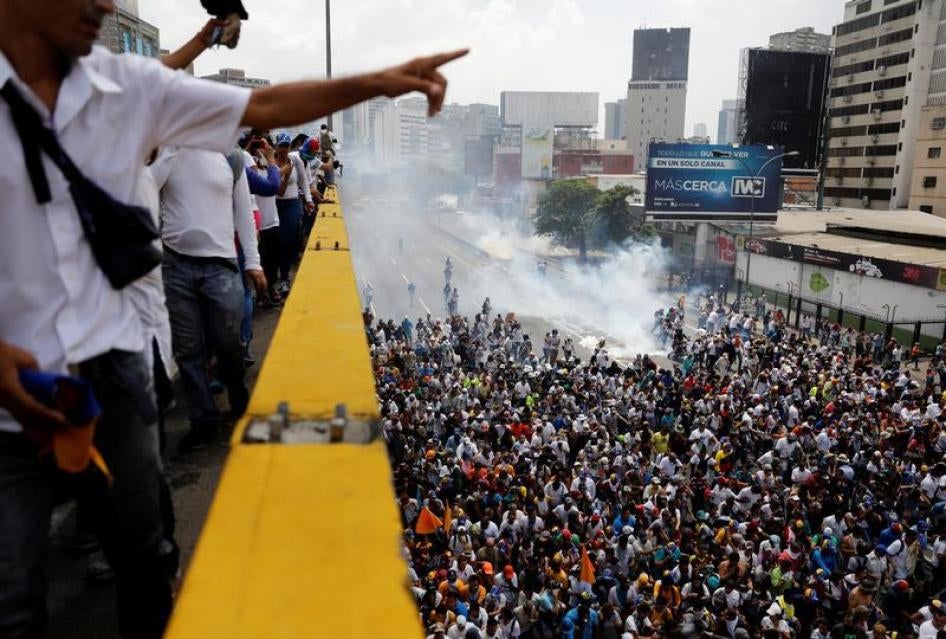The opposition in Venezuela organized what they called the “mother of all marches” today, as thousands poured into the streets to demand that the government hold elections, release political prisoners, reestablish judicial independence and the powers of the National Assembly, and allow sufficient humanitarian aid into the country.
The turnout was massive. But you’d never be able to tell from the information published by Venezuelan official sources – including the vice-president, Telesur, and VTV – that have been reporting exclusively on pro-government rallies in which large numbers of people participated, including some who sing and dance “in defense of peace.”
There aren’t many reasons to sing and dance in Venezuela today. Leave aside, for the moment, the political, economic, human rights, and humanitarian crisis that pushed thousands into the streets in protest. Today, security forces used force and deployed teargas against demonstrators, and dozens of people have been detained. Journalists covering the protests reported suffering harassment at the hands of security forces and pro-government supporters, and a TV cable channel that reported on the protests was taken off the air. At least one person was killed – a 17-year-old boy who was reportedly not participating in the demonstrations died after being shot in the head.
This was totally foreseeable. Today’s protests unfolded amid explosive tensions, in a country where security forces have brutally repressed anti-government demonstrations, sometimes in collaboration with armed pro-government groups. Before today’s demonstration, President Nicolás Maduro – invoking his “defending peace” slogan – accused the opposition of engaging in “violence, conspiracy, [a] coup d’etat, and interventionism.” He announced he would multiply the number of pro-government militias and arm them, while organizing parallel pro-government demonstrations to counter the opposition’s one.
In advance of today’s protests, the region’s eyes were on Venezuela. What is happening today should only be further evidence that there is an urgent need for strong international pressure to push for the restoration of human rights and democracy in Venezuela – and that the potential cost and risk of not exercising such pressure is rapidly increasing.









